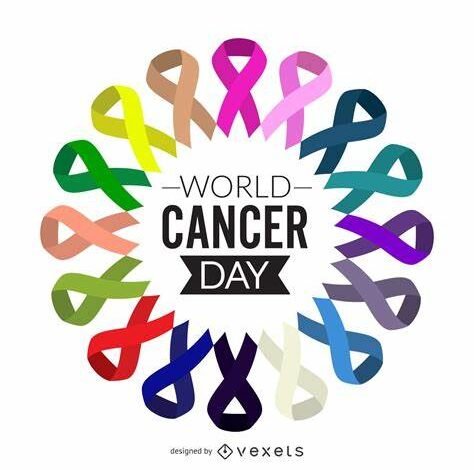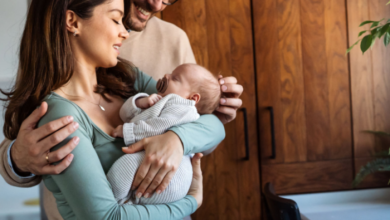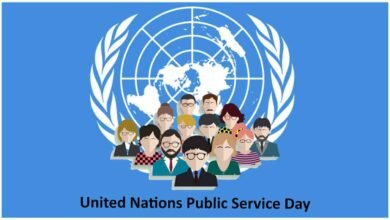World Cancer Day: Uniting for Awareness, Prevention, and Hope

World Cancer Day is celebrated annually on February 4th to raise awareness and educate people about cancer prevention, detection, and treatment. With an estimated 10 million deaths in 2022, cancer continues to be the world’s biggest cause of death, according to the World Health Organization (WHO). Globally, people and organizations unite on this day to emphasize the value of early detection, enhanced screening, advanced treatment alternatives, and the necessity of more robust international efforts to combat cancer.
World Cancer Day 2025 Theme
The theme of this year’s World Cancer Day is “United by Unique,” which emphasizes the value of individualized, patient-centered care in the fight against cancer. It points out the need to personalize care for each patient’s unique needs.
The program, which focuses on the individual experiences of cancer patients, survivors, and caregivers, will run from 2025 to 2027. The campaign advocates for more individualized treatment options while promoting empathy, compassion, and diversity in cancer care.
History of World Cancer Day
On February 4, 1999, during the World Summit Against Cancer in Paris, World Cancer Day was first introduced. The following year, during the World Summit Against Cancer for the New Millennium, in February 2000, the Charter of Paris Against Cancer was signed, formally establishing World Cancer Day.
This charter tackles important topics about cancer care, research, and treatment advancements and emphasizes the value of global collaboration in the battle against cancer.
Significance of World Cancer Day
World Cancer Day is an important global platform for increasing awareness of the various forms of cancer, promoting prevention, early detection, and efficient treatment to lower mortality. Cancer is one of the leading causes of death worldwide, affecting individuals and families in every part of the globe.
This day reminds people, governments, and organizations to work together to lessen the devastating effects of cancer on people, families, and communities around the world. However, despite medical advancements, many people still lack access to proper diagnosis, treatment, and care. Therefore World Cancer Day serves several crucial purposes:
- Raising Awareness: It educates people about different types of cancer, risk factors, and the importance of early detection.
- Encouraging Prevention: By promoting a healthy lifestyle, including nutritious eating, regular exercise, and avoiding harmful habits like smoking, many cases of cancer can be prevented.
- Advocating for Equal Care: The day also focuses on eliminating inequalities in cancer treatment, ensuring that every patient, regardless of background, has access to quality healthcare.
- Supporting Research: Many organizations use this day for fundraising for cancer research, which is essential for developing new treatments and finding a cure.
Cancer as the Silent Killer
Cancer is frequently referred to as a silent killer because it can go undetected for months or even years before symptoms appear. Many types of cancer, including ovarian, pancreatic, and lung cancer, develop subtly within the body and don’t exhibit any obvious symptoms in their early stages. The disease has frequently progressed by the time obvious symptoms show up, making treatment more difficult and decreasing survival rates.
Cancer can spread to other areas of the body before being discovered, which is one of the reasons it is fatal. While typical illnesses or infections produce symptoms right away, malignant cells can develop undetected and gradually damage organs and tissues.
The misunderstanding of early warning indicators is another factor contributing to cancer’s reputation as a silent killer.
Symptoms For Early detection of Cancer
Some of these symptoms are dismissed as unimportant health problems. By the time the illness is diagnosed, it has progressed to the point that surgery and chemotherapy are required. Early detection can greatly increase the chances of successful treatment. While symptoms may vary depending on the type of cancer, some common warning signs include:
- Unexplained weight loss: Losing weight without trying can be a sign of several types of cancer.
- Persistent fatigue: Constant tiredness that does not improve with rest can indicate an underlying health issue.
- Unusual lumps or swelling: Any abnormal growths or persistent swelling should be checked by a doctor.
- Changes in the skin: Darkened skin patches, yellowing, redness, and sores that do not heal, can be warning signs.
- Persistent cough: A cough that does not go away, especially if accompanied by blood, could indicate lung or throat cancer.
- Changes in bowel or bladder habits: Long-term constipation, diarrhea, blood in urine or stool, or difficulty urinating should be examined.
- Difficulty swallowing: Persistent trouble swallowing may be a symptom of throat, esophageal, or stomach cancer.
- Unexplained pain: Pain that does not go away can be a sign of several cancers.
- Unusual bleeding: Any unexplained bleeding, including nosebleeds, vaginal bleeding outside of menstruation, or blood in urine, should be checked.
The Need for People-centred Care in Cancer Treatment
Cancer impacts a person’s mental, emotional, and social health in addition to their physical health. A people-centered approach to cancer care guarantees that each patient’s treatment is tailored to meet their specific needs, emphasizing not only medical interventions but also quality of life, emotional support, and holistic recovery.
Although the course of traditional cancer therapies is largely standardized, each patient’s experience is unique. How patients react to treatment depends on a number of factors, including age, genetics, lifestyle, socioeconomic level, and personal preferences. Individualized treatment plans are given top priority in people-centered care, which guarantees that therapies are efficient and consistent with the patient’s preferences and values.
Cancer patients need social support, dietary advice, pain management, and psychological therapy in addition to medical care. Many people struggle financially, and emotionally, and fear being stigmatized. Physicians, caregivers, and the community collaborate to deliver comprehensive care under a patient-focused model. People-centered care improves patient outcomes and quality of life by incorporating empathy, accessibility, and personalization into cancer treatment.
Encouraging patients to participate actively in their recovery process through education, joint decision-making, and emotional resilience makes cancer treatment more efficient and humane.
Lessons for Children
There are valuable lessons for children on this day. These include:
1. The Power of Kindness and Compassion
- Children can learn the importance of supporting people who are sick, whether through kind words, small gestures, or helping raise awareness.
- They can be encouraged to participate in charity events, such as fundraising for cancer research or making cards for cancer patients.
2. Healthy Living Starts Early
- Kids should be taught that eating fruits and vegetables, exercising regularly, and getting enough sleep helps keep their bodies strong.
- Avoiding unhealthy habits, like excessive junk food, smoking, and too much screen time, can contribute to their health.
3. Understanding Medical Science and the Role of Doctors
- Children can develop an appreciation for doctors, nurses, and scientists who work tirelessly to treat and research cancer.
- Learning about vaccines, check-ups, and early detection helps them understand why regular doctor visits are essential.
4. The Importance of Community and Teamwork
- By learning about World Cancer Day, children see how people around the world come together to fight a common cause.
- They can understand that teamwork whether in schools, or families, can lead to powerful positive change.
5. Resilience and Hope in Difficult Times
- Children can learn that even in challenging times, hope, determination, and research lead to progress in fighting diseases like cancer.
- Stories of cancer survivors and advancements in medicine show that challenges can be overcome with perseverance and support.
Conclusion
World Cancer Day is a global call to action. It reminds us that cancer is a challenge we should face together, and each of us can play a role in reducing its impact. Whether it is by making healthy choices, spreading awareness, or supporting those affected, every effort counts. By continuing to work as a united global community, we move closer to a world where fewer lives are lost to cancer, and more people have the opportunity to live long, healthy lives.
Image Source: http://www.bing.com





